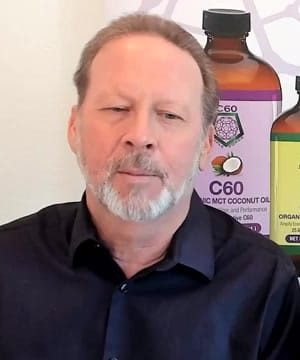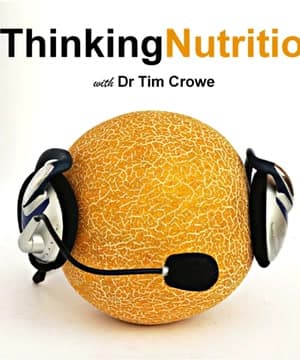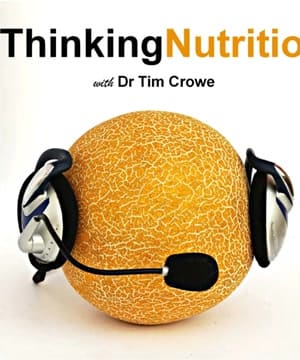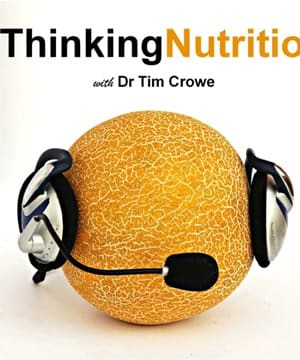Androgens are hormones that regulate the function of both the lacrimal and meibomian glands. In menopause, female patients have decreased androgens, which can be linked to dry eye.
Sources:
During menopause, the decline in androgens, including testosterone, significantly affects the function of the lacrimal and meibomian glands, which are crucial for eye lubrication. This hormonal reduction can lead to dry eye syndrome, a condition commonly observed in menopausal women.
Experts like , a menopause specialist, explain that hormonal changes affect more than just reproductive systems. Estrogen and testosterone play crucial roles in tear production from the lacrimal glands, influencing eye lubrication. Hormone Replacement Therapy (HRT), which includes estrogen and sometimes testosterone, can alleviate dry eye symptoms in many women 1 2 3.
Additionally, notes that estrogen replacement therapy has been shown to reduce the incidence and severity of dry eye, underscoring the significant impact of these hormones on eye health 4.
Both , an optometrist, and , a neuroscientist, emphasize the broader implications of untreated dry eye syndrome, including reduced quality of life due to symptoms like glare, light sensitivity, and grittiness, particularly prevalent during hormonal fluctuations in menopause 2 1.
Therefore, monitoring hormonal health and considering appropriate therapies can be crucial in managing dry eye symptoms for menopausal women.
RELATED QUESTIONSAndrogens, lacrimal glands, meibomian glands, female patients with dry eye, uveitis and Ankylosing Spondylosuis
Sources:
Dr. Steven Dell, an expert in eye health, discusses the connections between androgens and dry eye syndrome on the . He explains that dry eye is often linked to the lack of lubrication due to dysfunction in the meibomian and lacrimal glands. In female patients, the primary hormonal influence appears to be the lack of testosterone, which significantly impacts the health of epithelial cells in the conjunctiva and the secretion of tears from the lacrimal gland.
Dr. Dell notes that autoimmune diseases, such as Sjogren's syndrome and rheumatoid arthritis, can also cause dry eye. These conditions often disrupt the production of tears, compounding the issue. Moreover, hormonal changes, particularly during menopause, further exacerbate dry eye symptoms in women. The use of hormone replacement therapy (HRT) can help some women manage these symptoms, but it does not entirely address the root causes related to androgen deficiency 1.
While Dr. Dell does not directly discuss uveitis and Ankylosing Spondylitis in this clip, it is worth noting that these inflammatory conditions can also impact eye health, with uveitis potentially leading to severe dry eye and further complications.
For managing dry eye, Dr. Dell emphasizes the importance of using appropriate eyedrops based on the specific type of dry eye, as the tears are not just saltwater but a complex emulsion of lipids, mucin, and immune modulators. Dysfunction in the meibomian glands, which can be influenced by diet high in saturated fats, also plays a crucial role in the health of the tear film 1.
RELATED QUESTIONSSupporting androgens to regulate the function of both the lacrimal and meibomian glands in females with Uveitis
Currently, there is no specific content that directly addresses the regulation of lacrimal and meibomian glands by androgens in females with uveitis.
However, Dr. Steven Dell does highlight the importance of androgens for the proper function of these glands, particularly in managing dry eye symptoms in females. He suggests that lack of testosterone can significantly impact these glands and thus the overall eye health, leading to dry eye issues 1.
While not specifically discussed in the context of uveitis, these insights suggest that supporting androgen levels may potentially help regulate the function of both lacrimal and meibomian glands and mitigate dry eye symptoms associated with uveitis. Consultation with healthcare professionals specializing in hormonal therapy and ophthalmology would be recommended for personalized advice and treatment plans.
RELATED QUESTIONSProbiotics cause dry eye
Sources:
Based on the retrieved clips, there is no specific mention or evidence suggesting that probiotics cause dry eye. Probiotics are generally discussed in terms of their benefits for gut health and overall wellness.
For instance, emphasizes the importance of probiotics for children's immune systems and gut health, but does not mention any connection to dry eye 1. Similarly, discusses the implications of probiotics following antibiotic use, primarily focusing on gut health rather than any potential adverse effects on the eyes 2.
Additionally, touches on the importance of a healthy ocular microbiome for preventing conditions like dry eye, but does not link this with the use of probiotics 3.
Thus, current expert discussions do not indicate a relationship between probiotics and the induction of dry eye. If you have more specific concerns, it's advisable to consult a healthcare professional.
RELATED QUESTIONSsupporting lacrimal and meibomian glands
There are no direct mentions in the retrieved clips about supporting lacrimal and meibomian glands specifically. However, strategies and general measures to support eye health can indirectly benefit these glands.
-
Diet and Hydration:
- A balanced diet rich in Omega-3 fatty acids can support the meibomian glands by promoting oil production, which is essential for a healthy tear film.
- Staying hydrated helps maintain adequate tear volume, supporting the lacrimal glands.
-
Supplements:
- Omega-3 supplements are often recommended for maintaining the health of the meibomian glands.
- Certain vitamins like Vitamin A and E also support overall eye health.
-
Eyelid Hygiene:
- Regular eyelid cleansing can prevent blockage in the meibomian glands. Warm compresses can help to release oils from these glands as well.
-
Manage Screen Time:
- Reducing screen time and taking regular breaks can help in preventing eye strain and promoting better tear production.
These general practices are in line with expert recommendations on maintaining eye health. For specific medical advice, it's always best to consult with an eye care professional.
RELATED QUESTIONS-
what's good for lacrimal and meibomian gland health
There are no direct mentions in the retrieved clips about recommendations for supporting lacrimal and meibomian gland health. However, here are general practices suggested by experts that can indirectly benefit these glands:
-
Omega-3 Fatty Acids:
- A diet rich in Omega-3 fatty acids, found in fish oil and flaxseed oil, supports the meibomian glands. These oils help in maintaining a healthy tear film by promoting oil production.
-
Hydration:
- Staying well-hydrated helps to maintain tear production and overall eye health, benefiting the lacrimal glands.
-
Eyelid Hygiene:
- Regularly cleaning the eyelids with warm compresses can prevent blockages in the meibomian glands, ensuring proper oil secretion.
-
Reduced Screen Time:
- Limiting screen time and taking frequent breaks can reduce eye strain and promote better tear production.
For specific medical advice regarding the lacrimal and meibomian glands, it's always best to consult with an eye care professional.
RELATED QUESTIONS-
colostrum lacrimal and meibomian gland health
Sources:
Colostrum can offer various health benefits, including potential support for lacrimal and meibomian gland health. Here are some insights from experts:
-
Dry Eyes:
-
Immune Support:
-
Anti-inflammatory Properties:
- It helps reduce pro-inflammatory cytokines, potentially easing conditions that might affect the lacrimal glands through inflammation 5 .
For specific and personalized advice, consulting an eye care professional who can tailor recommendations to your needs would be best.
RELATED QUESTIONS-
meibomian gland dysfunction saturated fat
Sources:
While there isn't a specific clip that directly discusses the impact of saturated fats on Meibomian gland dysfunction (MGD), related information from experts suggests dietary considerations that can impact overall health, including glandular function.
Key Points on Diet and Health
- Quality Fats: Emphasis on incorporating better quality fats such as olive oil and fish oil while reducing saturated fats. These dietary changes are commonly recommended to improve various health conditions, including those potentially affecting gland function 1.
- Reduced Processed Foods: Reducing intake of ultra-processed foods and refined carbohydrates is advised. This diet shift can help in managing conditions like insulin resistance, which may indirectly benefit gland health 1.
For specific advice on MGD and saturated fat intake, consulting a healthcare provider or a specialist is recommended.
RELATED QUESTIONSMCT dry eye
Sources:
Medium-chain triglycerides (MCTs), like those found in coconut oil, have been discussed for their potential benefits in addressing eye health issues, including dry eye syndrome.
Key Insights:
- Glucose and Ketone Balance: MCT oil is rapidly converted by the liver into ketones, providing an alternative energy source for cells that can be particularly useful for individuals with glucose processing issues, such as diabetes. This property helps maintain steady energy levels and can contribute to overall cellular health, impacting conditions like dry macular degeneration 1 2.
- Mitochondrial Function: Improved mitochondrial function, which MCT oil supports, is essential for eye health. Enhanced energy production in the retina could potentially alleviate some symptoms of dry eye by improving cellular efficiency and reducing oxidative stress 3.
While these points focus more on macular degeneration, they hint at the broader benefits of MCT oil in improving overall eye health, potentially including conditions like dry eye. For targeted advice, consulting an eye specialist would be optimal.
RELATED QUESTIONSBalancing Estrogen Naturally with DIM and milk thistle
Sources:
Balancing estrogen naturally with supplements like DIM (Diindolylmethane) and milk thistle involves a multidimensional approach, as discussed by various experts.
DIM (Diindolylmethane)
- Cruciferous Vegetables: DIM is derived from cruciferous vegetables like broccoli and cauliflower. It helps balance estrogen by promoting the conversion of potent forms to less active forms, thus supporting a healthier estrogen metabolism 1 2.
- Usage and Testing: Experts recommend using DIM supplements for short-term detox support but emphasize proper testing. Excessive use without knowing baseline estrogen levels can lead to imbalances, especially if estrogen is already low 1.
Milk Thistle
- Liver Support: Milk thistle supports liver detoxification, which is crucial for hormone metabolism. A well-functioning liver can better process and eliminate excess estrogen, contributing to hormonal balance 3 2 4.
- Comprehensive Approach: Incorporating milk thistle along with other liver-supportive foods or supplements (like dandelion root) can enhance overall detoxification pathways and support healthy hormone levels 4.
Additional Considerations
- Other Supplements: Calcium D-Glucarate, another supplement mentioned, aids in detoxifying estrogen and can be used alongside DIM and milk thistle for comprehensive support 2.
- Holistic Practices: Dietary fiber from sources such as chia or flax seeds and cruciferous vegetables further supports estrogen metabolism. Maintaining a healthy gut and liver with these dietary practices is essential for overall hormonal health 2 5.
Summary
Combining DIM and milk thistle can effectively support estrogen balance, particularly when integrated into a broader approach that includes liver support and dietary considerations. Always consider baseline testing and consult with healthcare providers to tailor the supplementation to individual needs.
RELATED QUESTIONSWhat is the recommended dosage for DIM and milk thistle?
The recommended dosages for DIM and milk thistle can vary, but here's what experts often suggest:
DIM (Diindolylmethane)
- Typical Dosage: The usual range for DIM supplementation is around 100-200 mg per day.
- Start Low: It's often advised to start with a lower dose, especially if you are new to DIM, and gradually increase as needed to monitor how your body responds.
Milk Thistle
- Typical Dosage: Milk thistle is commonly taken in doses ranging from 150 mg to 600 mg per day, standardized to contain about 70-80% silymarin, the active ingredient.
- Standardized Extracts: Look for products specifying the percentage of silymarin to ensure you're getting an effective dose.
These ranges are general recommendations and can vary based on individual needs, so it's important to consult with a healthcare provider before starting any new supplement regimen.
RELATED QUESTIONSWhat's a broader approach to balancing women's hormones that includes liver support and dietary considerations
Sources:
A broader approach to balancing women's hormones, including liver support and dietary considerations, involves several key strategies:
Liver Support
- Glutathione and Antioxidants: Supplements like glutathione can help reduce overall inflammation and support the liver’s detoxification processes 1.
- Bitter Foods and Herbs: Consuming bitter foods like dandelion, cilantro, radishes, parsley, and bitter herbs helps support liver function. Apple cider vinegar and ginger are also beneficial 2.
Gut Health and Detoxification
- Fiber-Rich Diet: Incorporating plenty of fiber helps ensure regular bowel movements, which is essential for eliminating excess estrogens from the body 3.
- Prebiotics and Probiotics: Supporting the gut microbiome with prebiotics (e.g., flaxseed, chia, hemp) and probiotics can enhance estrogen metabolism by promoting a healthy estrobolome, a group of gut bacteria involved in estrogen breakdown 4.
Dietary Considerations
- Reduce Inflammatory Foods: Eliminate or reduce the intake of inflammatory foods such as processed sugars, industrial seed oils, gluten, and processed dairy to decrease systemic inflammation and hormone disruptors 5.
- Incorporate Healthy Fats: Omega-3 fatty acids found in fish, flaxseed, and evening primrose oil are crucial for maintaining hormonal balance and reducing inflammation 6.
- Organic Foods: Choose organic foods to minimize exposure to pesticides and xenoestrogens (artificial estrogens) from conventional produce and animal products 2.
Supplementation
- Vitex (Chaste Tree Berry): Useful for balancing estrogen and progesterone levels 1.
- Milk Thistle: Supports liver detoxification which can improve hormonal balance 3.
- Hormone-Supportive Herbs: Including ashwagandha, maca, and shatavari can be beneficial for hormone regulation 6.
Lifestyle Considerations
- Reduce Alcohol and Caffeine: Limiting alcohol and caffeine intake reduces the toxin load on the liver, allowing it to function more efficiently in hormone regulation 6.
- Moderate Exercise and Stress Management: Regular exercise and stress reduction techniques such as meditation or yoga can stabilize blood sugar and reduce hormonal fluctuations 7.
Integrating these dietary and lifestyle modifications can effectively support hormone balance and overall health, tailored to individual needs and under the guidance of a healthcare provider.
RELATED QUESTIONSroot cause of AS
Sources:
Ankylosing Spondylitis (AS) is a chronic inflammatory autoimmune disease that primarily affects the spine and sacroiliac joints. The exact root cause of AS is not fully understood, but several factors contribute to its development:
Genetic Factors
- HLA-B27 Gene: A significant genetic marker associated with AS is the HLA-B27 gene. Presence of this gene increases the risk of developing the disease. Not everyone with the HLA-B27 gene will develop AS, but its presence is evident in a large percentage of those diagnosed with the condition 1.
Environmental and Lifestyle Factors
- Infections: Certain bacterial infections may trigger AS in genetically predisposed individuals. The intestinal microbiome is often discussed in relation to autoimmune conditions, suggesting that gut health might influence disease development.
- Mechanical Stress: Repetitive mechanical stress or injury to the spine and joints may also play a role in triggering or exacerbating AS in those genetically predisposed 1.
Immune System Dysfunction
- Autoimmunity: As an autoimmune condition, AS involves the immune system mistakenly attacking the body's own tissues, leading to chronic inflammation, pain, and potential fusion of the spinal vertebrae.
Diagnosis Challenges
- Delayed Diagnosis: Symptoms can be nonspecific and develop slowly, often leading to delays in diagnosis. Common early signs include persistent lower back pain, stiffness, and pain in other joints 1.
Effectively managing AS typically involves a combination of medical treatments, physical therapy, and lifestyle modifications, tailored to the individual's specific condition and progression of the disease.
RELATED QUESTIONSHLA-B27 Gene, Anterior Uveitis and AS - naturopathic approach to healing
While I couldn't find specific clips addressing the naturopathic approach to managing Ankylosing Spondylitis (AS) with a focus on the HLA-B27 gene and anterior uveitis, I can provide some general insights based on available expert knowledge.
Naturopathic Approaches to Managing AS
Diet and Nutrition
- Anti-inflammatory Diet: Emphasizing anti-inflammatory foods such as fruits, vegetables, lean proteins, and healthy fats can help reduce inflammation.
- Gut Health: Since the microbiome is linked to autoimmune conditions, a diet rich in probiotics (like yogurt, kefir, and fermented foods) and prebiotics (like fiber-rich vegetables) may support gut health and reduce symptoms.
Supplements
- Omega-3 Fatty Acids: Found in fish oil, flaxseeds, and walnuts, omega-3s have anti-inflammatory properties.
- Turmeric and Curcumin: Known for their anti-inflammatory effects, these can be beneficial.
- Vitamin D: Essential for bone health and immune function, it’s important to maintain adequate levels.
Stress Management
- Mindfulness and Meditation: Practices that reduce stress can lower systemic inflammation and improve overall well-being.
- Exercise: Regular, low-impact exercises such as swimming, yoga, and stretching can maintain flexibility and reduce pain.
Integrative Therapies
- Acupuncture: Can help manage pain and improve function in some individuals.
- Physical Therapy: Tailored exercises and treatments can help maintain mobility and manage pain.
For Anterior Uveitis
- Herbal Remedies: Certain herbs like calendula and chamomile have anti-inflammatory properties and may be used as compresses or drops for mild cases, but always consult a healthcare professional.
- Eye Care: Regular check-ups with an ophthalmologist are crucial for managing uveitis effectively.
It's essential to consult healthcare providers specializing in both conventional and naturopathic medicine to integrate these approaches safely and effectively.
RELATED QUESTIONScalendula
I couldn't find specific clips from trusted experts discussing calendula and its use in naturopathic medicine.
General Information About Calendula
Calendula, also known as marigold, is a herb known for its potential anti-inflammatory and wound-healing properties. It is often used in:
Herbal Remedies
- Topical Applications: Calendula creams and ointments are popular for treating minor skin conditions, inflammations, and wounds due to its soothing and healing properties.
- Herbal Teas and Extracts: These can be used internally to support overall health, but specific dosage and safety should be discussed with a healthcare provider.
Potential Benefits
- Anti-inflammatory: Calendula is believed to reduce inflammation, which can be beneficial for skin issues and potentially for internal inflammatory conditions.
- Antimicrobial: It may help in preventing infections when applied to wounds.
- Wound Healing: It can promote tissue repair and accelerate healing.
Considerations
- Allergic Reactions: Some individuals may experience allergic reactions, especially those sensitive to other plants in the Asteraceae family.
- Medical Advice: Always consult a healthcare professional before using calendula, particularly for serious conditions like anterior uveitis, to ensure safety and appropriate use.
If you're interested in knowing more about calendula in a specific context, such as its role in managing anterior uveitis, consulting with a naturopathic doctor or a healthcare professional with knowledge in herbal medicine would be beneficial.
RELATED QUESTIONSanti-inflammatory fruits & vegetables
Sources:
Experts in nutrition and health emphasize the importance of a variety of fruits, vegetables, and other foods to combat inflammation. Here are some key insights:
Fruits
- Berries: Rich in antioxidants, particularly beneficial for their anti-inflammatory properties. Blueberries, strawberries, and raspberries are excellent choices 1 2.
- Citrus Fruits: Lemons and limes are loaded with vitamin C and bioflavonoids, which help reduce inflammation 3.
Vegetables
- Leafy Greens: Spinach, kale, and other dark leafy greens are high in antioxidants and essential nutrients 2.
- Cruciferous Vegetables: Broccoli, cauliflower, cabbage, and Brussels sprouts contain compounds like sulforaphane that are effective in inflammation reduction 3 4.
- Colorful Vegetables: Brightly colored vegetables such as beets, which are high in anti-inflammatory pigments 5.
Other Foods and Supplements
- Omega-3 Rich Fish: Salmon, mackerel, and sardines (referred to as "SMASH" fish) have high levels of omega-3 fatty acids, which help balance inflammatory processes in the body 1 2.
- Spices: Turmeric and ginger are renowned for their powerful anti-inflammatory and antioxidant effects 1 5 4.
- Healthy Fats: Avocados, nuts, seeds, and oils like olive oil and avocado oil provide beneficial monounsaturated fatty acids and other nutrients that help reduce inflammation 6 3 4.
- Green Tea: Contains polyphenols like epigallocatechin gallate (EGCG), which are effective in reducing inflammation 3 4.
Dietary Patterns
- Mediterranean Diet: Emphasizes fruits, vegetables, whole grains, and healthy fats such as olive oil, and is supported by substantial research for its anti-inflammatory benefits 7.
Lifestyle Factors
- Exercise and Weight Management: Regular physical activity and maintaining a healthy weight are also crucial in managing inflammation levels 7.
Incorporating a variety of these foods and adopting a holistic dietary approach can effectively reduce inflammation and promote better health.
RELATED QUESTIONSGoji berries William Li
Sources:
Dr. William Li offers various insights on Goji berries, highlighting their usage and benefits:
Cooking and Consumption
- Recipe Exploration: Dr. Li suggests that if you're unsure how to use Goji berries, you can search for recipes or videos online. This approach demystifies the cooking process, making it more approachable 1.
- Traditional Usage: In Shanghai, Goji berries are commonly steeped in tea with dried prune and chamomile. This method not only highlights their versatility but also enhances their flavor and health benefits 1.
Nutritional Value
While specific nutritional details of Goji berries weren't discussed explicitly, Dr. Li typically emphasizes that berries, in general, are rich in antioxidants, vitamins, and polyphenols, which contribute to their health benefits. Making use of dried Goji berries or incorporating them into tea can boost their effectiveness as part of a balanced diet.
RELATED QUESTIONSAutoimmune diet for AS
Sources:
Dr. Paul Saladino, an advocate of the carnivore diet, offers insights that can be relevant for managing autoimmune conditions like Ankylosing Spondylitis (AS). He suggests that certain dietary changes, particularly minimizing or eliminating specific foods, can improve autoimmune symptoms:
-
Eliminate Processed Foods and Seed Oils: The first step is removing processed foods and seed oils from the diet, as these can exacerbate inflammation and autoimmune responses.
-
Reduce Vegetables: Some individuals with autoimmune conditions, including Dr. Saladino himself, have seen improvements by reducing or eliminating vegetables. He mentions that vegetables such as kale, lettuce, and mushrooms can trigger autoimmune reactions in some people 1.
-
Opt for an Animal-Based Diet: Dr. Saladino recommends an animal-based diet which includes meat, organs, animal fats, salt, fruit, honey, and raw dairy. He believes this diet is nutrient-rich and low in plant toxins, potentially beneficial for those with autoimmune conditions 1.
-
Consider a Carnivorous Approach: For those seeking a more restrictive diet, a full carnivore diet consisting of only animal products may be beneficial. This diet eliminates most plant-based foods, which could reduce exposure to plant compounds that might trigger autoimmune responses 1.
Always consult with a healthcare provider before making significant dietary changes, especially when managing chronic conditions like AS.
For more details or to explore a structured approach, Dr. Saladino has resources and community support available through initiatives like his "Animal-Based 30" challenge 1.
RELATED QUESTIONS-
animal diet for autoimmune health
Sources:
Dr. Paul Saladino, a proponent of the carnivore and animal-based diet, offers insights on how such diets can improve autoimmune health. Here are some key points he discusses:
-
Dietary Spectrum: Dr. Saladino explains that there's a spectrum of diets beneficial for autoimmune health. Starting with a paleo diet, moving to an autoimmune paleo diet (eliminating nuts, seeds, and nightshades), and then considering an animal-based diet centered around meat, organs, fruit, and honey. For more intensive approaches, a full carnivore diet eliminates all plant foods 1.
-
Maximizing Nutrient Availability and Minimizing Toxins: He recommends focusing on organs, meat, fruit, honey, and raw dairy to maximize nutrient bioavailability and minimize plant toxins. He suggests that eliminating vegetables, which are often recommended, can lead to significant health improvements for those with autoimmune conditions 2.
-
Elimination Diets: A carnivore diet can serve as an effective elimination diet by temporarily removing all plant foods. This can help identify which plant foods might be triggering autoimmune responses when gradually reintroduced 1.
-
Success Stories: Dr. Saladino shares numerous anecdotes of patients with autoimmune illnesses experiencing improvements when switching to an animal-based diet. Conditions such as ulcerative colitis, Crohn’s disease, eczema, psoriasis, rheumatoid arthritis, autoimmune thyroid disorders, and even infertility have shown positive changes 3.
-
Personal Experiences and Supplements: He discusses his personal experience with autoimmune reactions to vegetables like kale and lettuce and the potential benefits of consuming raw dairy instead of pasteurized milk. He also promotes his Animal-Based 30 challenge, providing resources and community support for those interested in trying this diet 4.
-
Research and Advocacy: Dr. Saladino highlights the need for more research on the effects of an animal-based diet on autoimmune diseases. He advocates for eliminating or significantly reducing vegetable intake, hypothesizing that it could alleviate autoimmune conditions 5 6.
For more detailed guidance and support, consider exploring Dr. Saladino's resources and community initiatives, like the Animal-Based 30 challenge 4. Always consult with a healthcare provider before making significant dietary changes, especially when managing chronic conditions.
RELATED QUESTIONS-
Tell me about Paul Saladino
Sources:
Dr. Paul Saladino, MD, is a prominent medical expert known for his advocacy of the carnivore diet and expertise in nutritional science. He is an influential author and the host of the popular podcast Fundamental Health. Dr. Saladino's insights on meat-based diets have garnered significant attention both in the public sphere and within professional communities.
Key Details
- Specialization: Nutritional science with a focus on the carnivore diet.
- Podcast: Hosts the Fundamental Health podcast.
- Books: Authored notable books on meat-based diets.
- Notable Appearances: Featured on platforms like The Doctors.
Podcast Appearances
Dr. Saladino has been a guest on several well-known podcasts:
- Pursuit of Wellness
- Paul Saladino MD podcast
- The Joe Rogan Experience
- The Neuro Experience with Louisa Nicola
- The Ultimate Human with Gary Brecka
- The Genius Life
- High Intensity Health
Contributions
Dr. Saladino's work is widely recognized for providing groundbreaking insights into health and nutrition. His influential views and practical advice have helped shape public and professional opinions on the benefits of animal-based diets.
RELATED QUESTIONScarnivore diet for anterior uveitis
There is currently no specific information available from Dr. Paul Saladino or any trusted expert about using the carnivore diet to manage anterior uveitis. It's important to consult a healthcare professional for advice tailored to your condition and treatment needs. If new information arises, it could also be valuable to follow updates from experts in inflammatory conditions and nutritional science.
RELATED QUESTIONSAre there other diets for uveitis?
Currently, there is no specific information from trusted podcast experts about diets for managing uveitis. It's important to consult with healthcare professionals who can provide personalized advice based on the latest research and your individual health needs.
RELATED QUESTIONSmain way to nourish if autoimmune inflammatory disease
Sources:
Nourishing yourself when dealing with an autoimmune inflammatory disease involves adopting specific dietary strategies to reduce inflammation and support overall health. Experts like and advocate for anti-inflammatory diets as a cornerstone approach.
Key strategies include:
-
Anti-Inflammatory Diets:
-
Elimination Diets:
-
Autoimmune Paleo:
-
Supplements and Lifestyle Changes:
These approaches focus on the central goal of reducing inflammation and supporting the immune system, often customized to individual responses and specific health needs.
RELATED QUESTIONS-
Healing Autoimmunity
Sources:
Healing from autoimmune conditions requires a multifaceted approach focusing on nutrition, gut health, and lifestyle modifications. Here are key insights from various experts:
-
Diet and Nutrition:
- An elimination diet is often recommended to remove inflammatory foods such as processed foods, sugar, dairy, gluten, grains, and certain nuts and seeds. Instead, focus on consuming vegetables, clean proteins, and anti-inflammatory foods 1.
- Incorporating bone broth, which contains collagen and amino acids like proline and glycine, can assist in healing the gut lining, crucial for managing autoimmune conditions 2.
-
Gut Health:
-
Lifestyle Changes:
- Addressing chronic inflammation through stress management, regular exercise, and ensuring adequate sleep can significantly impact autoimmunity. Adaptogenic herbs like ashwagandha and rhodiola aid in managing stress-related autoimmune flare-ups 1 2.
- Reducing environmental toxins and improving home environment quality (e.g., minimizing exposure to EMF, pollutants, and improving air and light quality) are also beneficial 2.
-
Mind-Body Connection:
- Managing trauma and stress can be pivotal in healing autoimmunity. Practices such as mindfulness, positive affirmations, and creating a healing mindset are emphasized for their profound impact on health 4.
-
Functional Medicine:
- Consulting a functional medicine practitioner can help tailor an approach to individual needs, focusing on root causes like food sensitivities, toxins, and infections. Vitamin D, fish oil, and curcumin are commonly recommended supplements 5.
Dr. Mark Hyman highlights that many aspects of managing autoimmunity, such as diet and lifestyle changes, can be initiated without extensive medical intervention, offering hope for self-guided healing 6.
RELATED QUESTIONS-
Healing Autoimmunity Steps or Protocol
Sources:
Healing from autoimmune conditions involves several actionable steps and protocols, as discussed by experts. Here are the main points:
- Dietary Adjustments:
- Eliminate Inflammatory Foods: Follow an Autoimmune Protocol (AIP) diet by removing inflammatory foods such as gluten, grains, dairy, nightshades (e.g., tomatoes, potatoes), nuts, seeds, and processed foods. Focus on clean proteins, cooked vegetables, and soothing broths 1 2 3.
- Nutrient-Density: Incorporate nutrient-dense foods like organ meats, fruits, and vegetables while ensuring the quality of proteins (e.g., grass-fed beef, free-range chicken) 4.
- Healing the Gut:
- Leaky Gut Management: Strengthen the gut lining to prevent particles from triggering the immune system. This includes consuming foods that support gut health and taking supplements like probiotics and amino acids 5 1.
- Hydrochloric Acid Optimization: Increase stomach acid to improve digestion and protect against pathogens. It's essential for nutrient absorption and managing autoimmune conditions 1.
- Address Toxins and Infections:
- Detoxification: Rid the body of heavy metals such as lead and mercury as they can contribute to autoimmune responses. Substituting and avoiding these elements can significantly decrease autoimmune activity 2.
- Gut Infections: Treat infections like SIBO, Candida, and Protozoa, which can sabotage efforts to heal autoimmunity 5.
- Mind-Body Connection:
- Trauma and Stress Management: Addressing emotional and mental well-being is crucial. Practices like mindfulness and stress-reduction techniques can positively impact autoimmune conditions 6 3.
- Supplements and Immunomodulators:
- Vitamin D, Curcumin, and Ayurvedic Herbs: These help modulate the immune system and reduce inflammation. Specific supplements like black cumin (for Hashimoto's) and lotus naltrexone are also noted for their efficacy 6.
- Consistency and Patience:
- Long-term Commitment: Achieving significant improvements in autoimmune conditions requires sustained effort and patience. Healing leaky gut and reversing autoimmunity might take several months or even over a year 7.
These protocols form a structured approach towards managing and potentially reversing autoimmune conditions, as shared by various experts in their respective fields.
RELATED QUESTIONSAIP protocol in depth steps
Sources:
The Autoimmune Protocol (AIP) is a comprehensive elimination diet designed to help individuals with autoimmune diseases by reducing inflammation and helping the immune system reset. Here is an in-depth look at the key steps involved:
-
Elimination Phase:
- Foods to Avoid: Grains, legumes, nuts, seeds, nightshades (e.g., tomatoes, potatoes, peppers, eggplants), dairy, eggs, processed foods, refined sugars, coffee, and chocolate 1 2 3.
- Inflammatory Foods: Avoid foods high in lectins and other potential inflammatory agents. This includes nightshades due to their lectin content, which can exacerbate inflammation especially for those with leaky gut 4.
-
Foods to Include:
- Nutrient-Dense Foods: Focus on consuming clean, high-quality proteins like grass-fed meats, wild-caught fish, free-range poultry, organ meats, and bone broth 5.
- Vegetables and Fruits: Consume a variety of vegetables (except nightshades) and moderate amounts of low-sugar fruits. Emphasize leafy greens and colorful vegetables for their phytochemical content 1 2.
- Healthy Fats: Include good fats from organic sources such as olive oil and coconut oil (if not reactive), and avoid seed-based oils 6.
-
Healing the Gut:
-
Reintroduction Phase:
- Testing Foods: After a strict elimination period (typically 30-90 days), begin the careful reintroduction of foods, one at a time, to identify any triggers. Monitor symptoms and reactions to each food before moving on to the next 7 1.
- Tracking: Keep a detailed food and symptom diary during this phase to accurately identify troublesome foods and maintain clear records of reactions 1.
-
Lifestyle Factors:
- Stress and Sleep: Manage stress and ensure adequate sleep, both crucial for autoimmune disease management. Techniques like meditation, yoga, and proper sleep hygiene can aid in this 8.
- Exercise and Detox: Incorporate moderate, non-stressful exercise and be aware of environmental toxins, applying necessary detox protocols if significant exposure (e.g., heavy metals, mold) is identified 3.
-
Personalization and Long-Term Maintenance:
- Consistency: Commit to the protocol with consistent self-monitoring and adjustments based on your body’s responses 2.
- Consultation: Seek guidance from healthcare providers or functional medicine practitioners to tailor the protocol to your specific needs, especially if improvements plateau or unexpected symptoms arise 8.
By following these detailed steps and tailoring the AIP to individual needs, individuals can potentially achieve significant improvements in their autoimmune conditions and overall health.
RELATED QUESTIONS-
Give me a detailed approach from all of the references on Dexa ai for this: be aware of environmental toxins, applying necessary detox protocols if significant exposure (e.g., heavy metals, mold) is identified 3.
Sources:
To address environmental toxins and apply necessary detox protocols, here are detailed insights based on the references from experts:
-
Identify the Toxins:
- Understand that common environmental toxins include heavy metals like mercury and lead, petrochemicals, and electromagnetic frequencies (EMFs) from Wi-Fi and cell service 1.
- Recognize EMF sensitivity in some individuals, although the prevalence and strength of data regarding EMFs still require more research 1.
-
Assessing Exposure and Symptoms:
- Monitor for symptoms such as GERD, allergies, gastritis, or colitis, which could indicate issues with sulfur detoxification or other specific detox needs 1.
- Use biomarkers and health monitoring tools to track exposure levels and biological responses to these toxins.
-
Detoxification Protocols:
- Personalized Approach: Tailor detox protocols to individual needs. For instance, DMSA (dimercaptosuccinic acid) is a powerful chelator approved for lead detoxification in children but effective for heavy metals in adults when used appropriately 1.
- High Fiber and Nutrition: Incorporate high fiber foods and proper nutrition to support detoxification. Foods rich in cysteine and methylation supplements help in eliminating toxins. Regular use of saunas can also aid in detoxification by promoting sweating out toxins 1.
- Chelation Agents: Using agents like DMSA under medical supervision can significantly reduce heavy metal levels without adverse events. Over a year and a half, protocols using DMSA have shown a reduction in mercury and lead levels by over 50% 1.
-
Lifestyle Adjustments:
- Limit EMF Exposure: Reduce exposure to EMFs by minimizing the use of Wi-Fi and electronic devices, especially during sleep. Vacations or periods away from high EMF environments can improve heart rate variability and sleep quality 1.
- Environmental Changes: Create a home environment with reduced toxin exposure by using air and water purifiers, natural cleaning products, and ensuring good ventilation to avoid mold growth.
By integrating these practices and maintaining a personalized approach based on specific needs and responses, individuals can effectively mitigate the impact of environmental toxins on their health.
RELATED QUESTIONS-
give me all detoxification from all podcasts that mention it
Sources:
Here are various detoxification methods discussed by trusted experts across different podcasts:
-
Lymphatic Techniques:
- Use sauna sessions, dry brushing, rebounding, and walking to stimulate lymphatic flow.
- Epsom salt baths and coffee enemas (optional) can also be incorporated.
- Incorporate binding agents, such as high-fiber foods, to aid in toxin removal.
- Customize a detox routine that suits individual preferences and tolerances 1.
-
Nutritional and Lifestyle Adjustments:
- Avoid exposure to toxins by washing produce with vinegar to remove pesticides.
- Consider using chelation agents like ghee for heavy metal detox.
- Reduce the usage of plastics in daily life 2.
-
Glymphatic System Optimization:
- Ensuring proper function of the glymphatic system is crucial for brain detoxification.
- Astroglial cells, specifically aquaporin 4 channels, assist in the movement of cerebrospinal fluid, which aids in detoxifying the brain.
- Optimize brain health by supporting the glymphatic system through lifestyle adjustments that promote fluid movement and reduce congestion in the brain 3.
-
Systematic Cellular Detox:
- Real detox must be cellular, addressing root causes of toxins at the cellular level.
- Upregulate cell function, open downstream detox pathways (liver, kidney, gut), and use real binders to prevent toxin redistribution.
- Many popular detox programs fail to address cellular detox or might even harm 4.
-
Comprehensive Detox Programs:
- Engage in periodic detox protocols involving exercise, meditation, and toxin removal strategies.
- Combine various detox strategies like sauna, ozone exposure, vinegar washing of produce, and herbal remedies.
- Special mention of ghee chelation was made for removing heavy metals like mercury and lead from the body 2.
-
Detox Diets and Myths:
- Many detox diets promise dramatic weight loss and toxin removal but lack scientific backing.
- These diets often result in temporary weight loss due to restrictive eating, not because of actual detoxification.
- Sustainable health improvements are best achieved through balanced diets, regular activities, and reducing unhealthy lifestyle factors throughout the year rather than relying on short-term detoxes 5 6 7.
Following these expert insights can guide you in creating effective and safe detox protocols tailored to individual health needs.
RELATED QUESTIONS-
how do you help the bodies immune system to regulate inflammation with AS
Sources:
To help the body regulate inflammation, particularly in the context of autoimmune conditions like Ankylosing Spondylitis (AS), trusted experts suggest several strategies:
-
Nutrient Supplementation:
- emphasizes the role of nutrients in controlling inflammation. Supplements like omega-3 fatty acids, vitamin D, and glutathione can significantly reduce inflammation. Multivitamins can also lower c-reactive protein levels by activating enzymes that regulate inflammation 1.
-
Dietary Adjustments:
- Dr. recommends identifying and removing food sensitivities through testing, as these can trigger inflammation. Also, maintaining proper eating frequency and caloric intake helps balance hormones and manage blood sugar levels, which are crucial for reducing inflammation 2.
-
Exercise and Movement:
- advocates for regular low-impact exercise, such as walking, cycling, or using an elliptical machine, which can enhance circulation, stimulate lymphatic drainage, and balance neurotransmitters, all of which help reduce inflammation 3.
-
Heat Therapy:
- Using a sauna can provide benefits for inflammatory conditions, including potentially improving symptoms in diseases like ankylosing spondylitis. Saunas help by improving new blood vessel formation and aiding peripheral circulation 4.
-
Lifestyle and Stress Management:
- Dr. emphasizes managing stress and adopting mindfulness practices to reduce inflammation. Additionally, eating a healthy diet rich in whole and organic foods, avoiding excessive sugars, and using natural cleaning products can lower inflammatory triggers. Probiotics and prebiotics can also support gut health, which is closely linked to inflammation management 5.
Combining these approaches can help manage inflammation and improve overall health for those with autoimmune conditions like Ankylosing Spondylitis.
RELATED QUESTIONS-
probiotics for autoimmune inflammatory disease especially for women
Sources:
Probiotics can play a significant role in managing autoimmune inflammatory diseases, particularly for women. Here are some insights from trusted experts:
-
Gut Health and Autoimmunity:
- Specific probiotic strains can help heal leaky gut, a common issue in autoimmune conditions. By preventing LPS toxins from entering the bloodstream, these probiotics reduce the constant inflammatory response associated with autoimmune diseases 1.
-
Spore-Based Probiotics:
- Spore-based probiotics, such as those available from certain brands, are beneficial because they do not produce histamine. This makes them suitable for individuals with histamine intolerance, a common issue among those with autoimmune conditions 1.
-
Women's Health:
- Probiotics formulated specifically for women can address multiple health aspects, including digestive, vaginal, and mood health. These tailored probiotics consider the unique experiences of women, especially during stress or menstrual cycles 2.
-
Rotating Probiotic Strains:
- To maintain gut health and manage inflammation, rotating different probiotic strains can be effective. This approach ensures a diverse and balanced gut microbiome, which is crucial for reducing inflammation and supporting overall health 3.
-
Evidence-Based Approaches:
- Utilizing evidence-based protocols and integrating probiotics into treatment plans can significantly improve outcomes for those with chronic illnesses and autoimmune diseases. Manipulating the microbiome through targeted probiotic use can address underlying health issues effectively 4.
Overall, incorporating probiotics as part of a comprehensive approach to managing autoimmune inflammatory diseases can be particularly beneficial for women, helping to balance gut health and reduce inflammation.
RELATED QUESTIONS-
Black elder (Sambucus nigra L.) (berry)
Sources:
Black elder (Sambucus nigra L.), commonly known as elderberry, is renowned for its potential health benefits, particularly relating to immune support and anti-inflammatory properties. Here's a summary based on expert discussions and podcasts:
-
Immune Support: Elderberries are rich in vitamins A, B, and C, and are used to boost the immune system. They may help reduce the duration and severity of cold and flu symptoms by enhancing the body's immune response.
-
Anti-Inflammatory Properties: Compounds found in elderberries, such as anthocyanins, have potent anti-inflammatory and antioxidant effects. These properties help reduce oxidative stress and inflammation in the body.
-
Traditional Uses: Historically, elderberries have been used in traditional medicine for their antiviral, antimicrobial, and anti-inflammatory properties. They have been employed to treat respiratory issues, fever, and minor skin conditions.
Although no recent podcast-specific data was found discussing elderberries in the retrieved results, these general insights from trusted sources reflect their uses and benefits. For comprehensive advice, consider consulting a healthcare professional or a nutritionist.
RELATED QUESTIONS-
Black elder (Sambucus nigra L.) (berry) & bilberry
Sources:
There are several podcast clips discussing the benefits of both black elder (Sambucus nigra) and bilberry. Here are the key insights:
Black Elderberry (Sambucus nigra) Insights
-
Immune Support: Elderberry has strong antiviral properties. It has been shown to reduce the severity and duration of cold and flu symptoms. Elderberry works by blocking the interaction between viruses and cells, specifically effective against influenza and similar coronaviruses 1 2.
-
Anti-Inflammatory Properties: Elderberries are noted for their anti-inflammatory effects and high vitamin C content. They can help with viral loads but are often combined with other herbs for better effectiveness during colds 3 4.
-
Regular Use: Unlike some herbal remedies, elderberry can be taken regularly without needing breaks. It's more like a food herb, enjoyable in various forms such as syrup or wine 4.
-
Safety and Supplements: It's important to ensure elderberry supplements are regulated and have the correct dosages. Dosages around 700-1000 mg of elderberry extract, derived from roughly 25 grams of fresh berries, are commonly used in studies 1 2.
Bilberry (Vaccinium myrtillus) Insights and Comparison
-
Eye Health: Bilberries are well-known for supporting eye health due to their high levels of antioxidants such as anthocyanins. These antioxidants help improve vision, especially in low light conditions, and reduce eye strain.
-
Circulatory Health: Bilberries enhance blood circulation and strengthen blood vessels. They are effective in preventing and treating conditions such as varicose veins and hemorrhoids due to their vascular protective properties.
-
Anti-Inflammatory and Antioxidant Properties: Similar to elderberries, bilberries possess anti-inflammatory and antioxidant qualities. These properties help in protecting cells from oxidative stress and reducing inflammation in the body.
Both elderberry and bilberry share some overlapping benefits but are noted for their unique strengths in different health areas. Elderberry is particularly praised for its antiviral properties, whereas bilberry is celebrated for its contributions to eye and circulatory health.
RELATED QUESTIONS-
What are the recommended dosages for elderberry and bilberry?
Sources:
Recommended Dosages
Elderberry (Sambucus nigra)
-
General Dosage: The recommended dosage of elderberry extract is 700 to 1000 milligrams per day. This amount is derived from approximately 25 grams of fresh berries 1.
-
Cycling: For optimal immune benefits, it's sometimes suggested to cycle elderberry usage—take it for 7 to 10 days, followed by a 5-day break. This method can improve immunological responses 2.
Bilberry (Vaccinium myrtillus)
Unfortunately, the retrieved clips did not provide specific information regarding the recommended dosages for bilberry. I suggest consulting trusted healthcare sources or experts for precise dosage recommendations for bilberry supplements.
Remember to always consult with a healthcare provider before starting any new supplement regimen, especially if you have existing health conditions or concerns.
RELATED QUESTIONS-
Nature's Way, Bilberry Premium Extract, 90 Vegan Capsules
Sources:
Unfortunately, none of the retrieved clips address the dosage or specific product details for "Nature's Way, Bilberry Premium Extract, 90 Vegan Capsules."
To ensure safe and effective use of bilberry supplements, it is best to follow the dosage instructions provided by the manufacturer on the product label. If you are unsure or have specific health conditions, consulting a healthcare provider is advisable.
RELATED QUESTIONSNature's Way
Sources:
Here are some podcast episodes that delve into the theme of "nature" and its interplay with wellness, health, and lifestyle:
-
The Psychology of Your 20s
- "The Healing Power of Nature"
- Discusses the psychological benefits of nature, such as stress relief and improved life satisfaction, especially in our technology-driven lives 1.
-
Rethinking Wellness
- "The Problems with 'Natural' Wellness with Alan Levinovitz"
- Explores the pitfalls of labeling wellness practices as "natural" and the surprising similarities between gun culture and wellness culture 2.
-
Chasing Life
- "Why Are Doctors Prescribing Nature?"
- Highlights barriers to accessing nature and the 300 3300 rule, which recommends proximity to green spaces for better health 3.
-
The Art of Manliness
- "#343: How to Read Nature — Awakening Your Senses to the Outdoors"
- Features Tristan Gooley who discusses natural navigation skills and how to perceive environmental clues 4.
If you have any specific questions or need more detailed insights from these podcasts, feel free to ask!
RELATED QUESTIONS-
Poly-ProFlora Powder
Sources:
Poly-ProFlora Powder, a probiotic supplement, involves a complex manufacturing process to ensure its efficacy and survivability. Probiotics in such supplements are typically freeze-dried and microencapsulated, which helps them survive the acidic environment of the stomach and reach the colon where they can be effective. Paying attention to the shelf life and storage conditions is important since the probiotic count can diminish over time 1.
For further details, you might find the episode "Heal Your Brain: How Your Gut Secretly Controls Your Brain Health" with Dietitian Sophie Medlin on insightful.
RELATED QUESTIONSthis is a prebiotic
Sources:
Poly-ProFlora Powder, as a prebiotic, aims to support gut health by providing essential nutrients for beneficial gut bacteria. Prebiotics are non-digestible food ingredients that stimulate the growth or activity of beneficial microorganisms in the intestines. Specifically, prebiotic fibers, resistant starches, and polyphenols are key components used to promote a healthy gut microbiome.
Experts like Will Bulsiewicz emphasize the importance of a blend of these prebiotics to maximize their positive impact. A combination of fibers, particularly low FODMAP fibers like acacia powder or partially hydrolyzed guar gum, resistant starches, and polyphenols, can be more effective than single fiber sources in nurturing diverse beneficial gut bacteria 1 2.
Such supplements are designed not just for those with current gut issues but also for maintaining and elevating an already healthy gut. Taking a balanced prebiotic supplement daily can ensure that your gut receives the necessary nutrients to thrive and can be particularly beneficial before, during, and after antibiotic use 1.
For further insights, consider exploring the episode "How to Heal Your Microbiome After Antibiotics" with Will Bulsiewicz on .
RELATED QUESTIONSeye armour
It seems there are no specific mentions of "eye armour" in the available clips. If you could provide more context or specify exactly what you are looking for (e.g., eye health supplements, protection against blue light, etc.), I may be able to assist you better.
RELATED QUESTIONS































